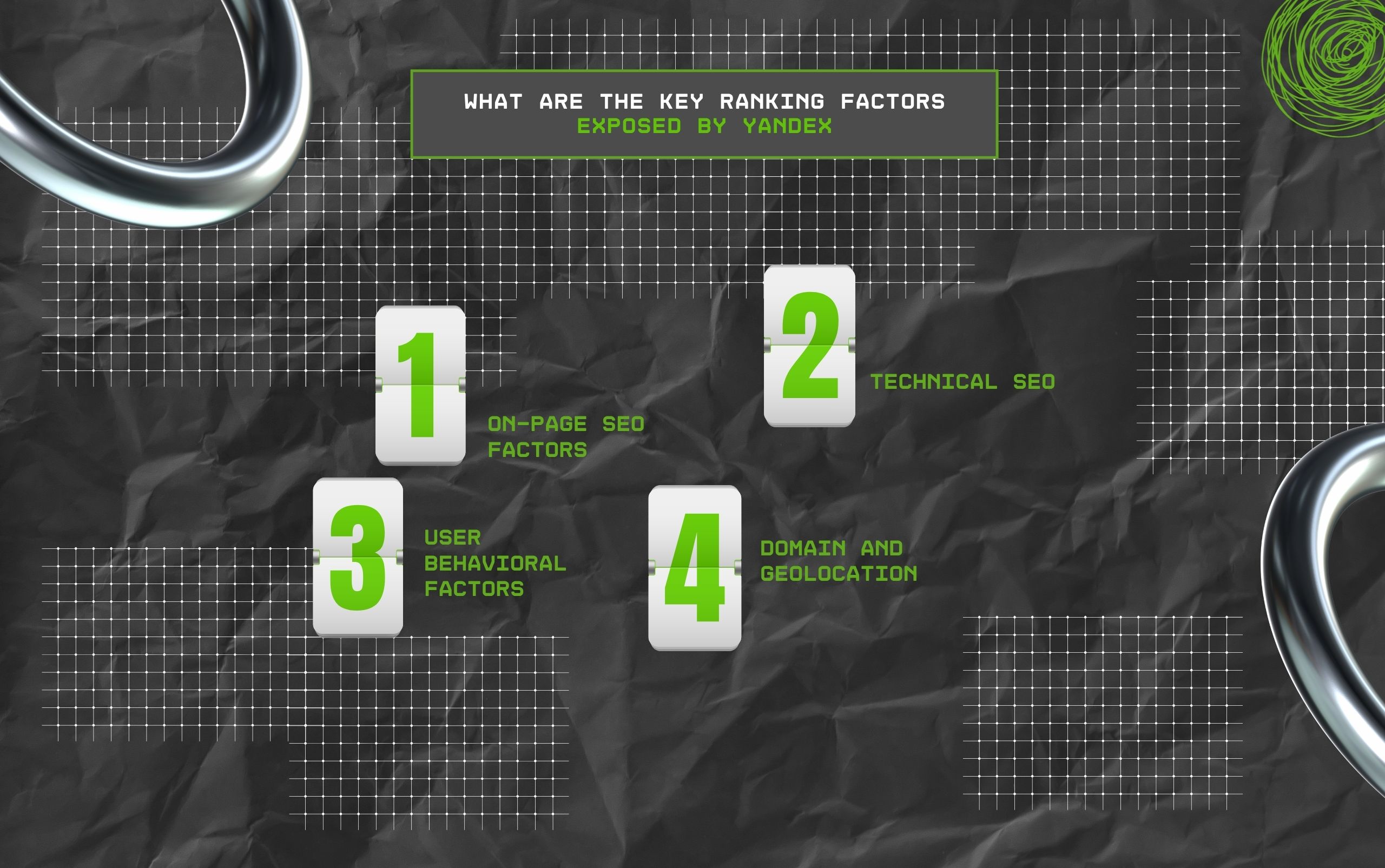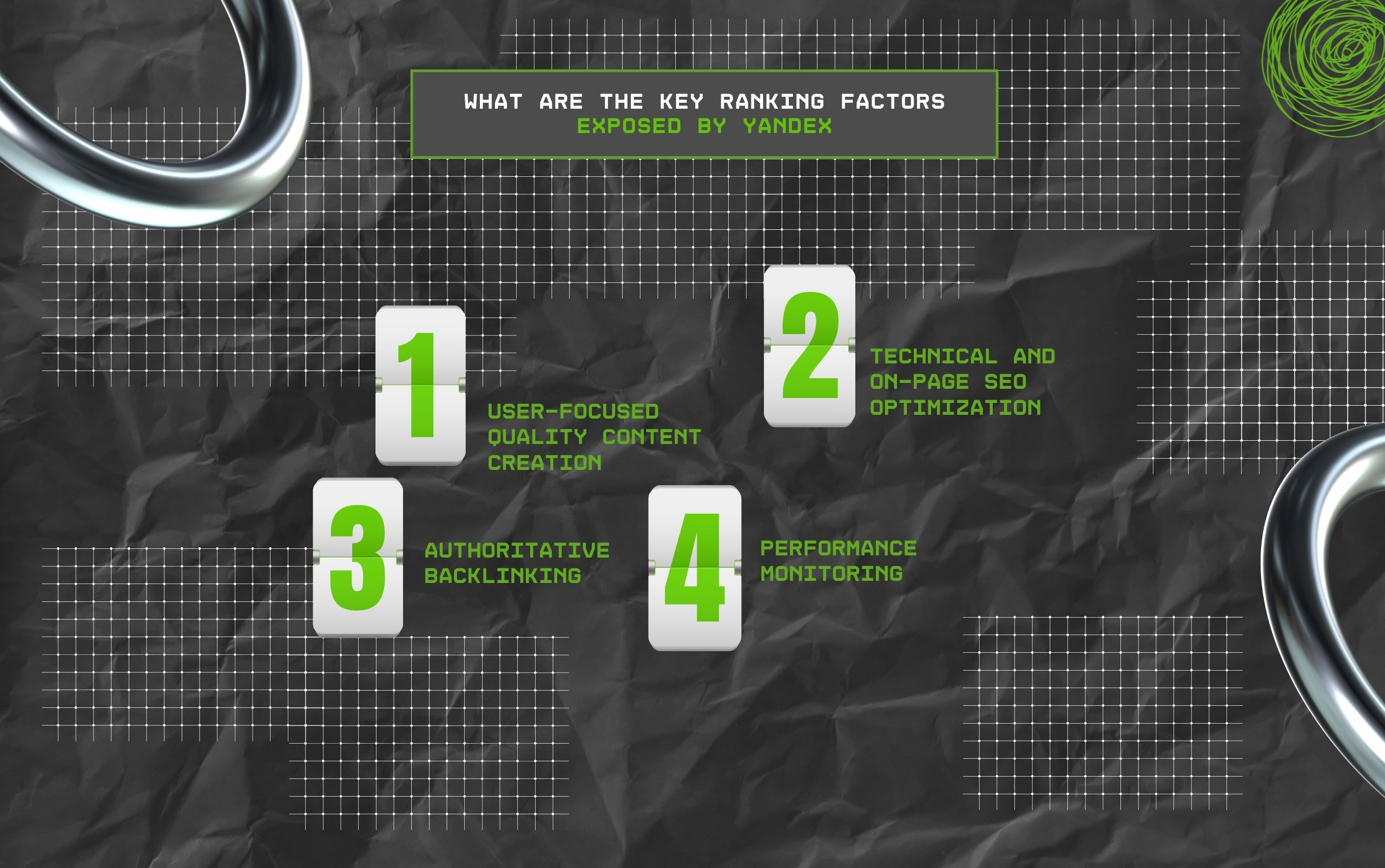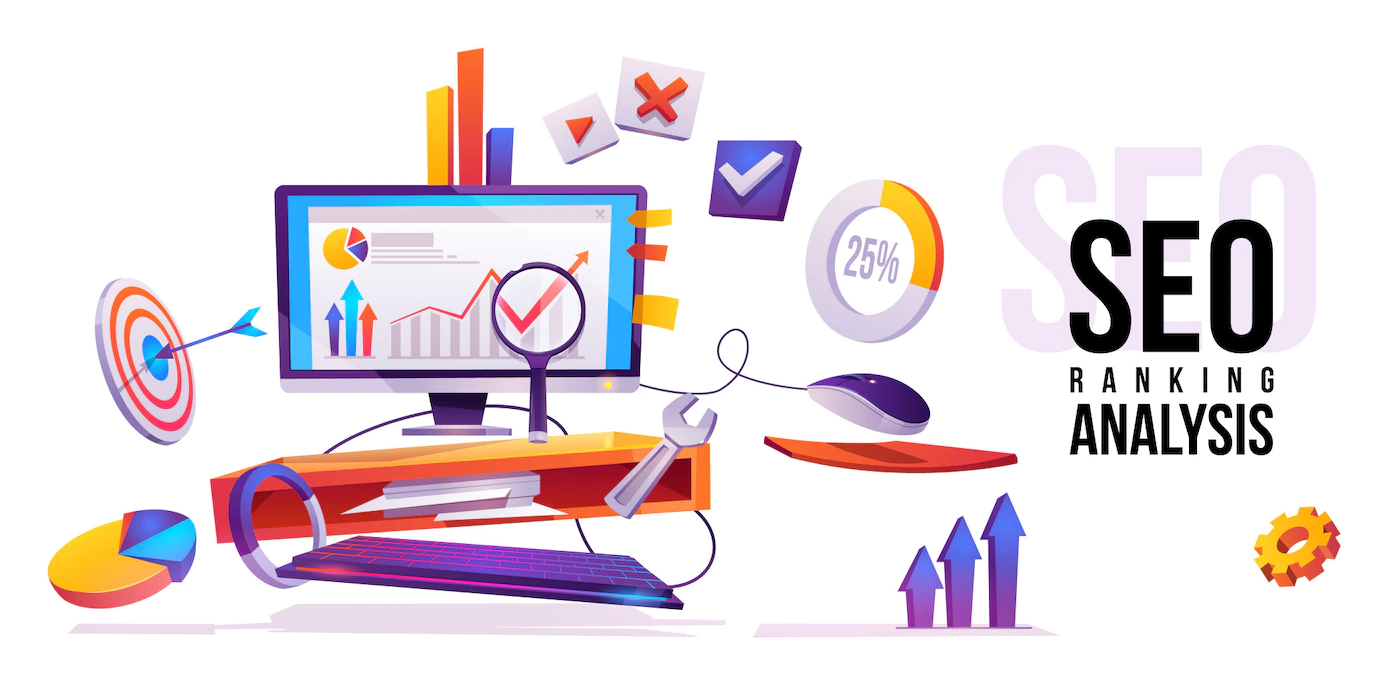How Law Firms In San Francisco Can Benefit from SEO
Feb 28, 2026

Feb 28, 2026

Feb 28, 2026

Feb 27, 2026

Feb 27, 2026

Feb 26, 2026

Feb 26, 2026

Feb 25, 2026

Feb 25, 2026
Sorry, but nothing matched your search "". Please try again with some different keywords.


‣ Yandex SEO refers to the strategies and practices that help businesses rank on Yandex SERPs and boost website performance.
‣ Unlike Google, Yandex prioritizes user-focused content and uses strict content evaluation metrics. So, having a proper strategy is important for successful ranking.
‣ Yandex SEO best practices include— creating user-focused content, optimizing the site for mobile devices, using schema markup, adding authoritative backlinks, and avoiding common mistakes.
Even though Google is the predominantly used search engine, countries under the Commonwealth of Independent States (CIS) prefer Yandex.
From Russia to Belarus, or Kazakhstan to Uzbekistan, Yandex has a monthly user visit of 88.54 million. Making it the leading search engine for these countries.
So, if you are planning to expand your business across the Russian markets, ranking on Yandex is vital. And, for that, you need a properly developed SEO strategy.
Now, Yandex’s search algorithm strikingly varies from Google’s algorithm. So, the same SEO strategy won’t cut it. That’s why businesses need Yandex SEO — specifically designed to improve rankings.
Moreover, Yandex SEO strategy helps boost website ranking, drive organic traffic, enhance audience engagement, and overall improve website performance.
So, in this blog, I am going to delve into the diverse aspects of Yandex SEO by focusing on—
Stay tuned!

First things first, Yandex is a Russian-operated search engine that was launched by the MNC Yandex LLC along with various internet-related services.
So, it is massively used in Russia as well as other countries in the CIS. As the report from Statista shows—
“As of January 2025, the Russian search engine Yandex had a global market share of 63 percent. Despite registering some of its highest worldwide reach and an increasing uptake, this is not a significant share compared to the dominance of Google. However, in Russia itself, Yandex has a much greater share of the search engine market”.
Moreover, Yandex offers various search-related services like navigational maps, web browsers, and even advertising.
So, similar to Google’s services — Maps, Google Ads, or Chrome — it provides a complete package for internet services.
Although both are search engines, Yandex varies a lot from Google. That is, they have dissimilar search algorithms and regional focus.
Primarily, Yandex’s focus is Russian user base, whereas Google focuses on global users. So, Yandex is designed to understand the complex Russian terms and provide comprehensive results.
Moreover, Yandex’s searches are dependent on the regional and geographical location.
So, even if two users search for the same thing, they will get different results based on their location. But this doesn’t really happen with Google searches.
In addition to this, Yandex has a stricter algorithm for evaluating the content value than Google. So, it is difficult to rank in Yandex without employing a proper strategy.
Back in 2023, one of Yandex’s former employees leaked the huge source code, exposing over 1900 ranking factors.
According to the report from BrandWell—
“The Yandex leak was shared in a file that contained what’s now believed to be 17,854 search ranking factors”.
So, naturally, the SEO industry took up the chance to learn about them and improve the website rankings in a jiffy. Basically, using a cheat code to rank higher.
Even though this code leak was instantly resolved by removing some factors and updating the others, it completely exposed how the search engine algorithm works.
As UpGrow reports—
“244 of the leaked ranking factors have been removed, and 988 have been deprecated or updated”.

Similar to Google, Yandex has diverse ranking factors to determine how valuable the content is before ranking it on the results page. So, some of the key ranking factors include—
Firstly, Yandex prioritizes the on-page SEO — content quality, keyword relevance, and meta-tags. So, it checks whether the content addresses relevant user queries, has authoritativeness, and provides quality information.
As the report from Weglot claims—
“If a search query contains a term, but it’s not mentioned on the pages of your website, it’s unlikely that the search engine will consider your website to contain a good answer to the query”.
Additionally, it checks the relevance of the keywords used in the content. Since the content is distributed for a Russian audience, it looks for terms from the native language.
Unlike Google, Yandex’s indexing speed is comparatively slow. So, it takes time to discover and index new pages and site URLs.
Moreover, Yandex prioritizes mobile-optimized sites for ranking. Given that most users use mobile devices to search, it provides mobile-optimized pages for better engagement.
In addition to this, Yandex checks backlinking quality and quantity for ranking webpages. That is, it evaluates the relevance, frequency, and quality of backlinks used in the page.
Similar to Google, Yandex also rewards sites with higher user engagement. So, based on the click-through rate and dwell time, it ranks pages in the results section.
Moreover, the Yandex Metrica functions like Google Analytics to point out the user engagement of websites. As Weglot highlights in the report—
“The average amount of time a user spends on the website after accessing it from a non-SERP web page. The average “depth,” or number, of pages the user views, after accessing a website from a non-SERP webpage.”
Since Yandex searches are dependent on regional location, it prioritizes geolocation-marked webpages for ranking.
So, if the website offers regional content, it signals to Yandex’s algorithm and it ranks the content for the regional search queries.

Now, Yandex focuses on regional user intent to rank webpages. So, here are the best Yandex SEO practices to improve the overall performance of the websites.
Firstly, businesses need to create high-quality user-focused content. That is, the content should address user queries, have relevant keywords, and engaging elements.
Moreover, to help Yandex understand the context of the content, businesses can use schema markup. So, it is easier to rank on snippets and overviews of the search engine.
In addition to this, the technical and on-page SEO aspects should also be prioritized. That is, the websites should have a faster loading speed, be mobile optimized, and have a proper XML sitemap.
Moreover, businesses can use Yandex.Direct to find relevant keywords for creating content and optimizing the meta-tags. Also, Yandex Webmaster can help identify the technical issues and fix them.
Apart from these, businesses can build a strong authority with high-quality backlinks from trustworthy websites. This way, they can signal Yandex about the relevance of the websites to rank better.
According to the Linguana report on the relevance of Yandex SEO—
“Good content and strong backlinks are fundamental for Yandex SEO success. Focus on creating useful, informative content that answers searchers’ questions effectively. Structure your website logically and use clear meta descriptions. Quality backlinks from trusted websites help show Yandex that other sites value your content.”
Finally, businesses can use analytical tools like Yandex Metrica and Yandex Webmaster to monitor the SEO performance of their websites.
So, based on the insights from these tools, they can adjust or modify the strategies. That is, adapting to the changing search algorithm of Yandex.
Ranking in Yandex means prioritizing user-focused content. So, here’s how to use the Yandex SEO strategy for boosting the overall website performance—
Having a proper Yandex SEO strategy means it should be foolproof. That is, there should not be any mistakes.
So, here are some of the common mistakes to avoid for ranking higher on Yandex SERPs—
By avoiding these few things, businesses can improve their ranking on Yandex and gain more organic traffic to their websites.
Even though Google is still the globally leading search engine, ranking on Yandex can give businesses an added advantage. As there is less competition, businesses can easily expand their market in the CSI zone.
So, with this guide in hand, go ahead and build your own Yandex SEO strategy to rank and find foreign engagement today!
Here are some of the common questions about Yandex SEO strategies and practices.
Unlike Google, the competition is Yandex for ranking is less. So, businesses can easily attract more audience engagement with their content. Additionally, Yandex offers localized results for region-specific searches. So, local businesses can massively benefit from ranking on Yandex compared to Google SERPs.
Even though the code leak of Yandex transformed SEO, it cannot forever change the SEO foundations. Moreover, the leaked code gave an insight into the ranking factors used by Yandex’s search algorithm. So, businesses can optimize their sites based on that and improve their ranking.
Among the overall population of Russia, around 45% people use Yandex to search for queries in a single day. So, more or less, over 8.7 million users visit Yandex to look for 6-7 queries on average.
Generally, Yandex prioritizes user-focused content. So, it definitely tracks user data and search history to understand the user’s behavior and provide results that are aligned with the user’s preferences. Moreover, the privacy policy of Yandex states that it can keep and use the user data for 90 days from the time it is collected.
Barsha is a seasoned digital marketing writer with a focus on SEO, content marketing, and conversion-driven copy. With 8+ years of experience in crafting high-performing content for startups, agencies, and established brands, Barsha brings strategic insight and storytelling together to drive online growth. When not writing, Barsha spends time obsessing over conspiracy theories, the latest Google algorithm changes, and content trends.
View all Posts
How Law Firms In San Francisco Can Benefit fr...
Feb 28, 2026
The Power Of Internal Linking For Restaurant ...
Feb 28, 2026
Can You Play The Google Zipper Game In 2026?
Feb 27, 2026
How To Make Money On Instagram? The EASIEST C...
Feb 27, 2026
AI Workflow Automation In The Era Of Google U...
Feb 26, 2026

